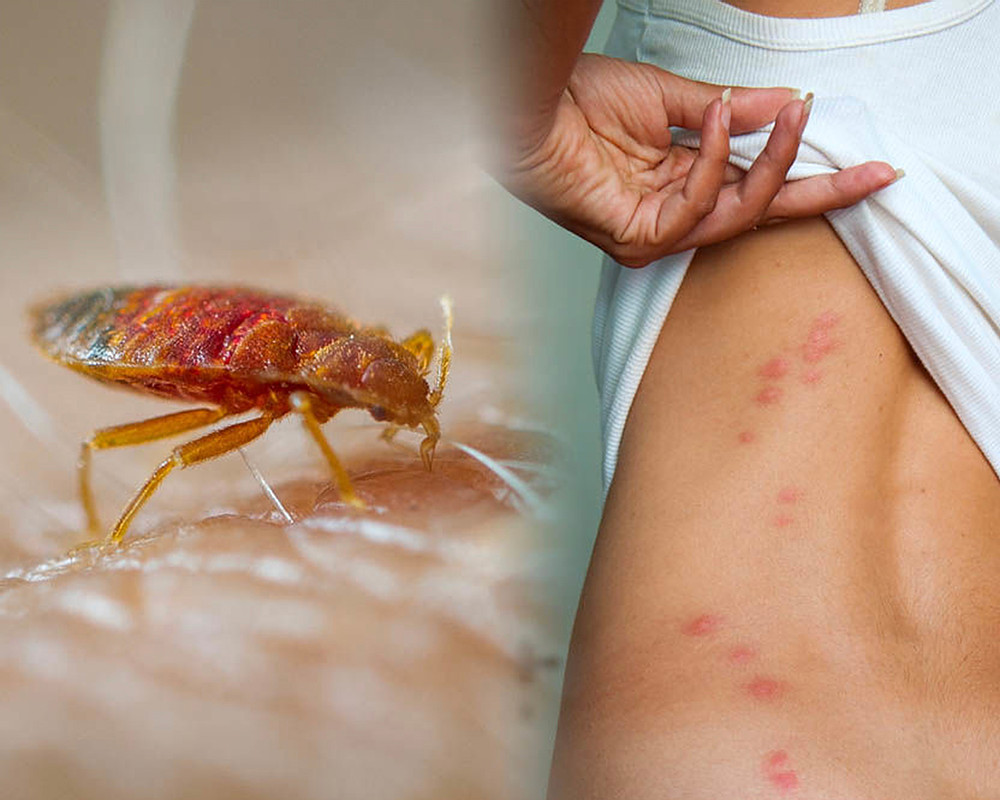Scabies vs bed bugs are mites that are often mistaken as they cause because of the same issues. They are both irritant pests that cause itchy bites, after all. The bites can also resemble eczema or mosquito bites, further confusing the situation. Bugs and scabies mites, on the other hand, are two different organisms.
Each pest necessitates a unique treatment and removal strategy. As a result, understanding the differences between scabies and bedbugs is critical. You can determine the best way to treat your bites and handle an infestation by correctly identifying the pest.
It is surprising how these tiny parasites can turn your world upside down. Did you ever wonder that these parasites can mess with your whole body ecosystem? No, right? But they do. They physically harm you and mentally drain you, and all of this massively impacts your daily routine.
To cure this, you must first figure out the difference between the parasites. For example, you must know whether it is bed bugs or scabies only to figure out which medicines to use or which pesticides to spray.
We understand that it is not possible to make out a difference between both creatures. But when we are with you, it is not impossible. In this article, we will acquaint you with the difference between bed bugs vs. scabies. In addition, we will provide you with some solutions.
Scabies vs Bed Bugs – How They Look Like?
Is there any difference between scabies vs bed bugs?
Scabies is a teeny-tiny creatures but can cause torment as these mites reproduce and can even live on your skin for months.
Their bite can cause rashes and intense itching, especially at night. The infection caused by them are highly contagious, and doctors often recommend the entire family get the treatment. It approximately takes six weeks for the symptoms to appear.
On the other hand, Bed bugs are tiny parasites that feed on human blood. They are generally active at night and early morning, and you can find them near pipelines, around the bed, tags of the mattress, and box springs. The bites can be extremely itchy, painful, and problematic.
These bites and infections are unpredictable as sometimes they can be mild enough to recover by themselves without medicines, and sometimes they will immediately need a doctor’s attention and medications.
Our Curated List For :
- Check Bed Bug Relief Creams
- Bed Bug Relief Liquids
- Bed Bug Relief Spray
- Top Rated Bed Bug Relief Products On Amazon
Which Are the Prone Areas for the Bites?
Prone Areas For Scabies
- Nipple
- Penis
- Waist
- Buttocks
- Area between fingers
- Armpit
- Elbow
- Wrist
Above listed areas are for adults, and for the kids following are the areas-
- Hands
- The sole of the feet
- Head
- Face
- Neck
Prone Areas For Bed Bug Bites
Although they can bite you anywhere and everywhere, most commonly, the prone areas are:
- Neck
- Legs
- Arms
- Shoulders
- Hands
- Face
Scabies vs. Bed Bug – Signs and Symptoms
Symptoms for Scabies
- Bumps under the skin
- Rashes consisting of hives, boils, bites
- Spots that look like a pimple
- They seem like discolored lines
- Intense itching at night
- Sores
- When a person’s condition is severe, they develop a thick crust on the skin which are called crusted scabies.
Symptoms for Bed Bugs
- Fever
- Bleeding from the center of the bite
- Small, red lesions
- Itching
- White or clear skins, shed by the nymphs as they get mature
- Painful burning sensations
- The zigzag pattern of little welts or red bump
- Check Chigger Relief Creams
- Chigger Relief Liquids
- Chigger Relief Sprays
- Top Rated Chigger Relief Products on Amazon
Scabies vs Bed Bugs – Treatment Options
Scabies needs medication as it cannot heal by itself. In addition, you must follow your doctor’s instructions and prescriptions. Some of the common lotions or creams are listed below:
Treatment for Scabies
- Sulfur ointment of 10 percent
- Crotamiton cream 10 percent
- Lindane lotion 1 per cent
- Benzyl benzoate lotion 25 percent
- Permethrin cream 5 per cent
- Steroid creams
- Antibiotic
Kindly consult your doctor before you use them.
Treatment for Bed Bug Bites
- Self-heal- Most of the time, the bed bug bites get to heal all by themselves within one to two weeks.
- Apply anti-itch cream.
- Calamine lotions
- A pain reliever can help you relieve your swelling and pain.
These are some of the effective and efficient methods to cope with the infection.
Conclusion
I hope this information was helpful to you all and helped you in understanding the difference. Do visit this website for more details, as we keep posting such valuable facts and keep imparting knowledge that concerns your health.
